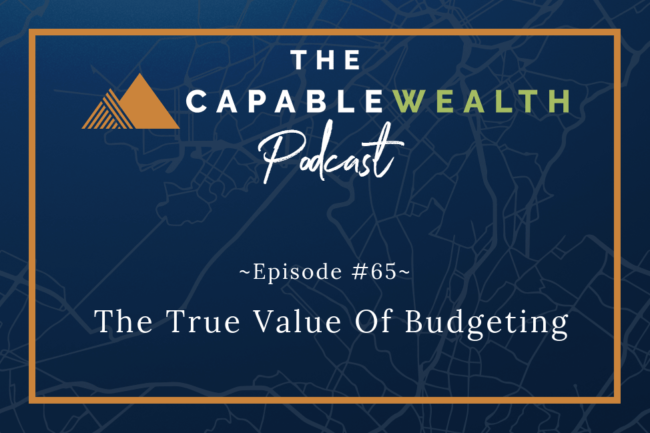A number of years ago, one of my friends from college made a comment about me and another friend that got me thinking.
He said, “I know you and _____ (mutual friend of ours) are going to be successful, but I’m not sure who is going to be more successful.” (I’ve left my other friend’s name blank on purpose)
I’m a competitive person, so at the time, my initial response was something along the lines of, “We’ll see!” with a bit of a motivated and focused tone. I certainly had it in my mind that I was going to be the most successful.
A CONVERSATION REVISITED
As I’ve moved deeper into the world of personal finance and have learned so much, I think back to this conversation.
If someone were to say the same thing to me now, my response would be, “Well, that depends on how you define success.” I’d probably still be a bit competitive about it, though… haha
I’ve also considered how thinking about success, and more importantly, defining success, is so crucial when planning your finances.
A QUIZ
If you had to choose who was more successful between the following two individuals, who would you choose?
A) Person A earns $100,000 per year and drives a Porsche.
B) Person B earns $50,000 per year and drives and outdated Toyota.
Most people would clearly point to option A. This person is earning TWICE the salary of the first, and they have been able to purchase a fancy sports car! Not too shabby.
But what if you add some additional context?
A) Person A earns $100,000/year and drives a Porsche. But, to be able to afford this, they have to work 80+ hours per week, rarely get to spend quality time with their family, and have no time to exercise and keep healthy. They have been slowly gaining weight over the years, their doctor says their health is declining, and there is an incredible amount of strain on their relationships because of their absence.
B) Person B earns $50,000/year and drives and outdated Toyota. But they are able to be home each night to spend time with their family. They never miss one of their kid’s soccer games. They exercise regularly and compete in weekend sporting events, and have been told by their doctors that they are in fantastic health.
Are you second-guessing your first choice of who is more “successful?” I know I am.
THE PRICE YOU (MIGHT) PAY
Every time you make a decision it has unintended consequences that you might not be considering.
Are you staying late at the office each night so you can earn that next promotion, but by doing so you keep missing dinner with the family?
I have a close friend who told me about one of his childhood friends one time. This individual had a father that was a successful consultant.
At his peak, he was earning a 7-figure salary and doing incredibly well (financially).
Slowly but surely, his focus on his career and finances weighed heavily on the family. He grew distant from his wife and kids, ultimately ending in a divorce and strained relationships with his children.
You cannot argue that he was a “success” when it came to his career and finances, but at what cost?
CLIMBING THE WRONG MOUNTAIN
One of my close friends once told me about an issue he was having.
He has been very successful in his career and finances. But, kudos to him, he has also worked to make sure it doesn’t hurt his personal life.
At the time of our conversation he was in the running for a promotion at work. He had been working hard for this promotion for a while, and it was looking promising.
As he started to get comfortable with the idea that he was most likely getting the new position, he started to think about what that meant for the future. And, more importantly, if it aligned with what he truly wanted.
He realized that with each additional promotion, he was getting pulled further into a system that would demand more and more of his time, effort, and resources. Sure, the financial gains would be fantastic, but what would that mean for his personal life, and plans for the future.
As we discussed this, an analogy occurred to me.
Everyone always talks about “climbing the mountain” in reference to achieving a goal. But we don’t simply stop at the top of the mountain. You’re likely to look out into the horizon for the next mountain to climb.
But what if, when you reach the top and look out, all you see are more of the same types of mountains. And what if those mountains aren’t what you truly want?
ENTER TONY ROBBINS
I often refer to ideas that I’ve heard from Tony Robbins. He has been one of the top personal development experts for decades for good reason.
One thing I heard him say during an event was that “success without fulfillment is the ultimate failure.”
If you achieve your goals by “reaching the mountaintops,” but you aren’t happy with what you are doing or have accomplished, is it truly success?
Going back to my friends’ statement – how can we compare who is more successful if we don’t incorporate fulfillment into the equation?
HOW TO DEFINE SUCCESS
Success is a very subjective term. People often talk about success, comparing people they know, notable figures in society, etc. The problem is, success is often directly thought to correlate to the amount of money you earn, or the material wealth you possess.
We can argue about what success is or isn’t. But the important thing to consider is that success cannot be achieved unless you first define what success means to YOU.
So, how do you do that?
I can’t tell you exactly what you should do, but I can tell you what I do for myself.
As readers of this blog know…
I am very passionate about helping people connect the numbers side of life to the human side of life. All of this finance stuff isn’t worth any of your time if it isn’t helping you live your ideal lifestyle; bringing you joy and happiness.
So, when I think about success, I think about living a life that I am happy with on a daily basis. Each day, week, month, year – am I engaging in the things that bring me joy?
Then I think about what I need to accomplish in my professional and financial life in order to make all of those things possible.
So, the next time you’re planning your finances and begin to set goals for yourself, be sure to incorporate your personal definition of success.
Make sure your goals are aligning with that definition. And if they aren’t, ask yourself why not.
Capably Yours,
















